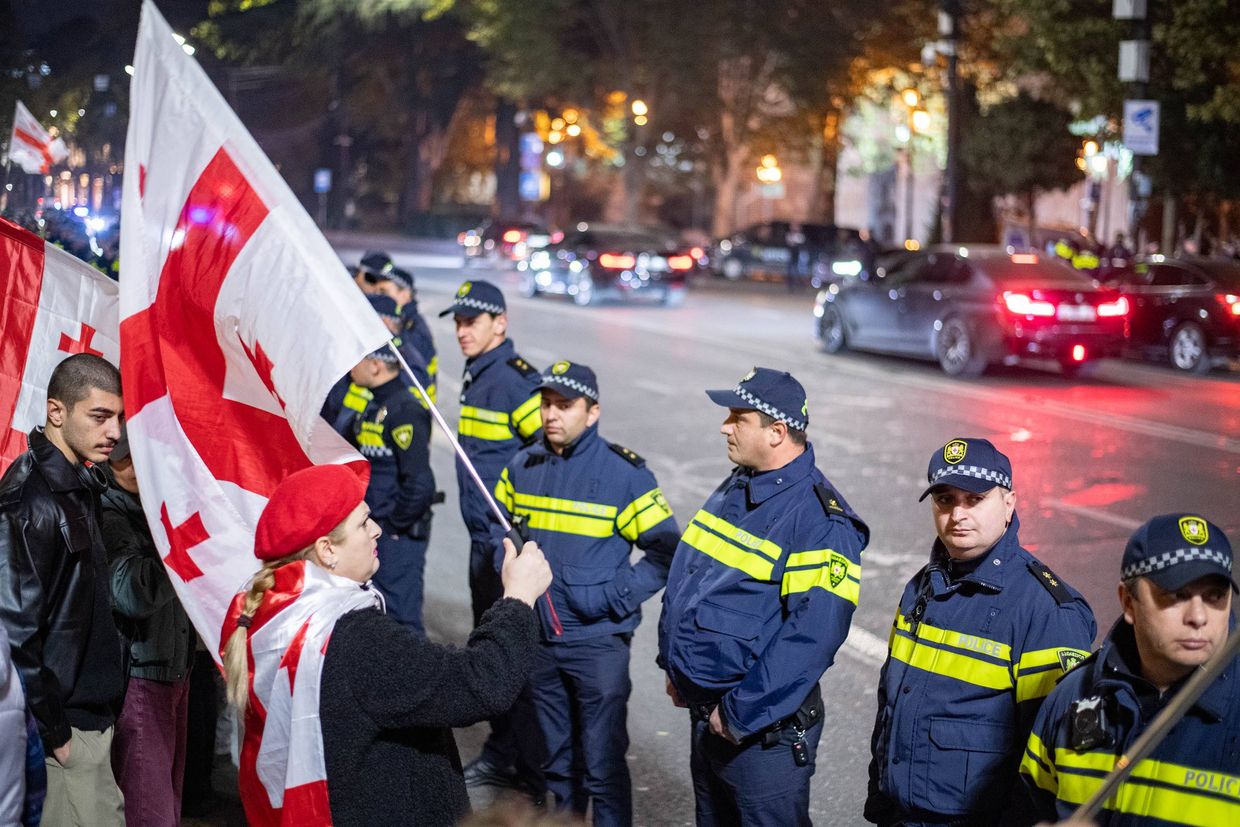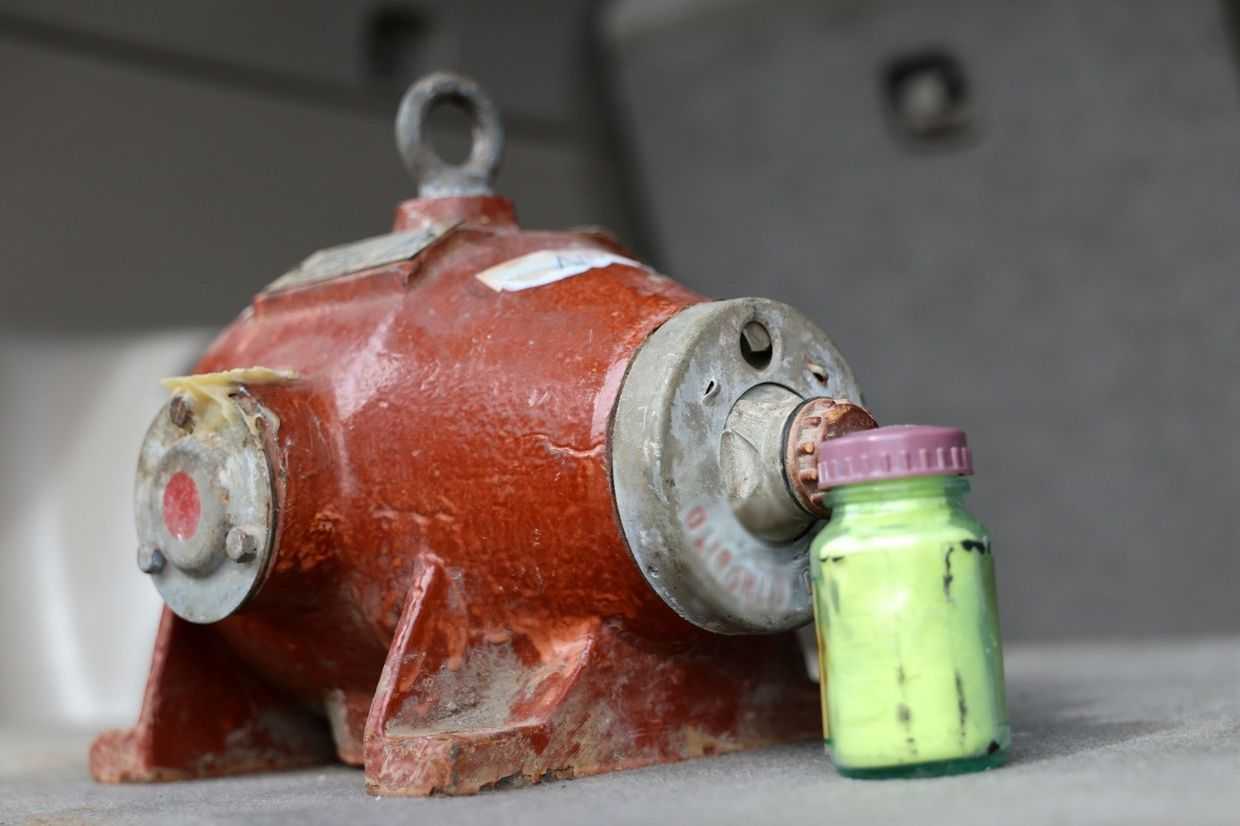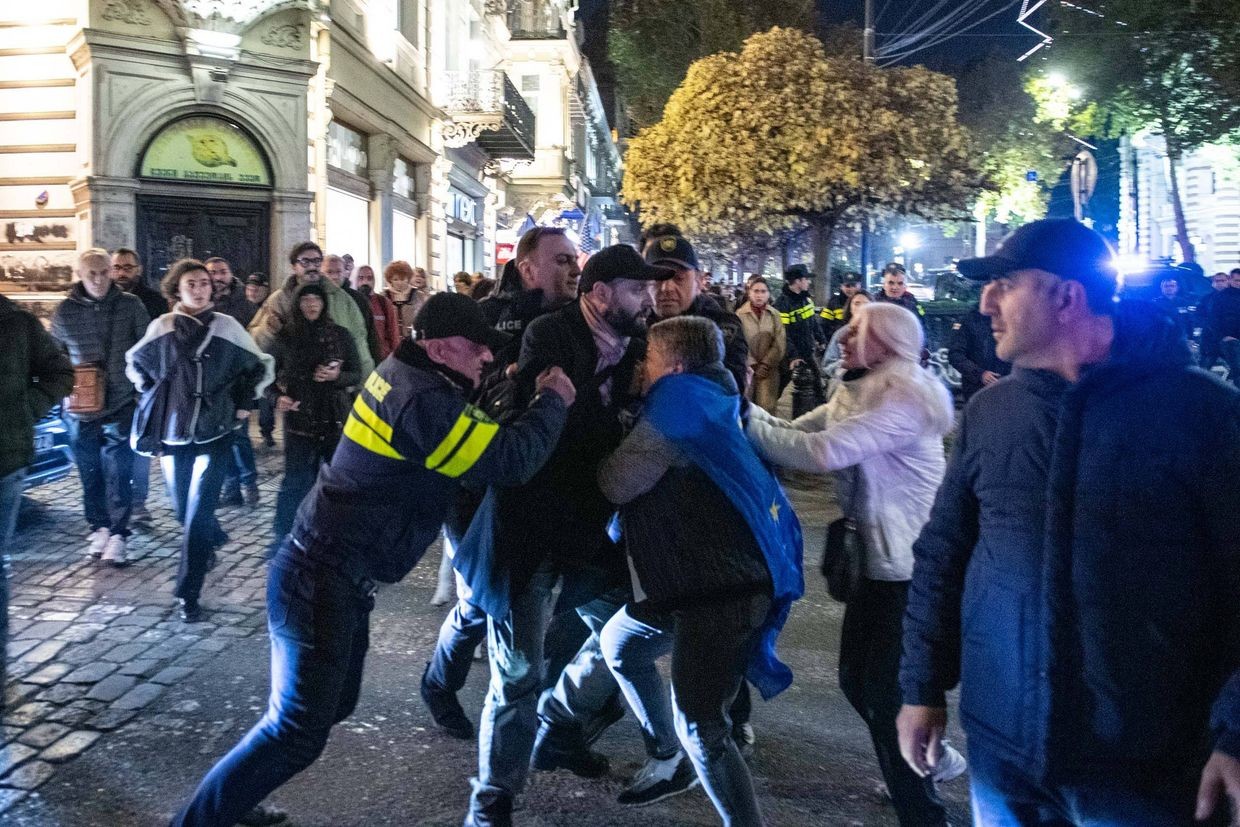
Georgian police have ramped up the number of detentions occurring during the ongoing daily anti-government protests in Tbilisi, which have shifted from static rallies to marches.
From 19 to 24 November, there was not a single day on which police did not detain at least two people at the protests. According to public reports, more than 30 individuals were taken by officers during this period under various administrative charges.
The highest number — 13 people — were detained on 19 November, followed by the detention of eight people on Saturday evening and another eight on Monday evening. Other days also saw arrests, though in smaller numbers.
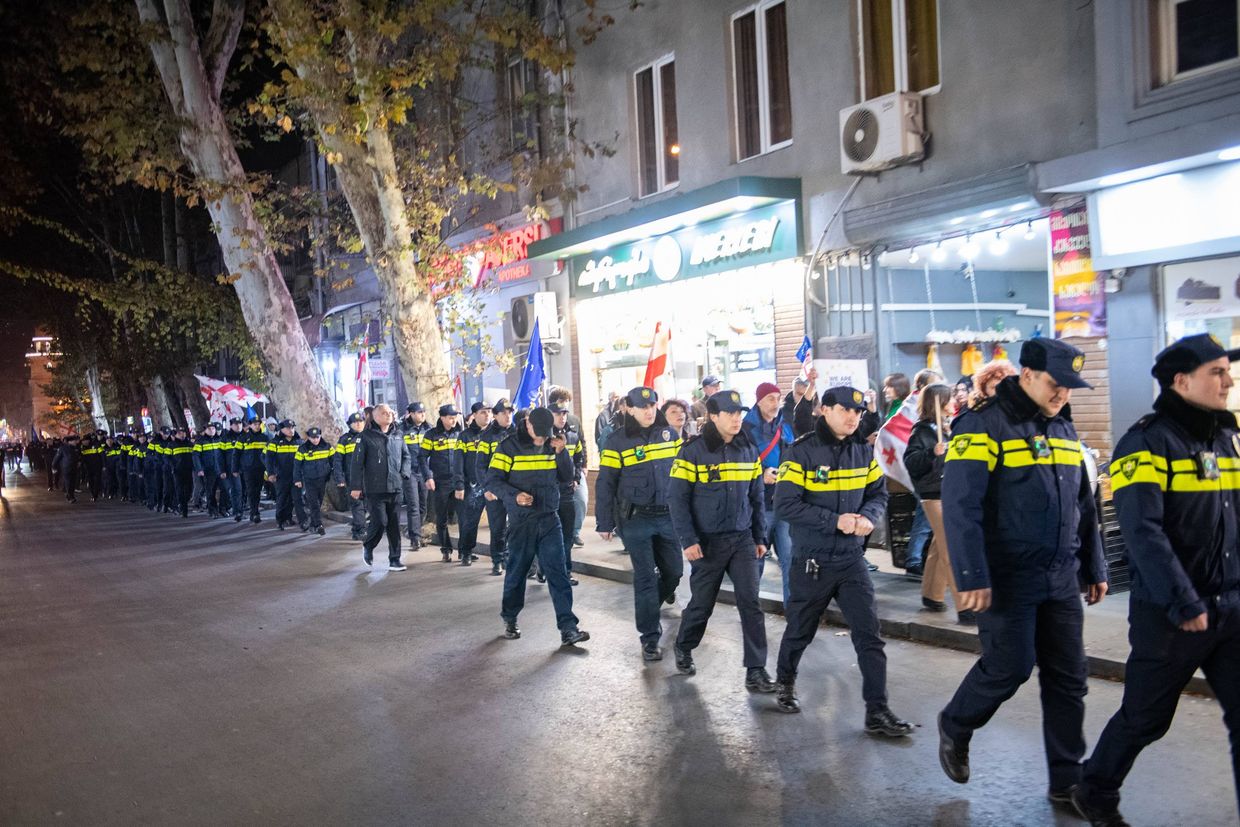
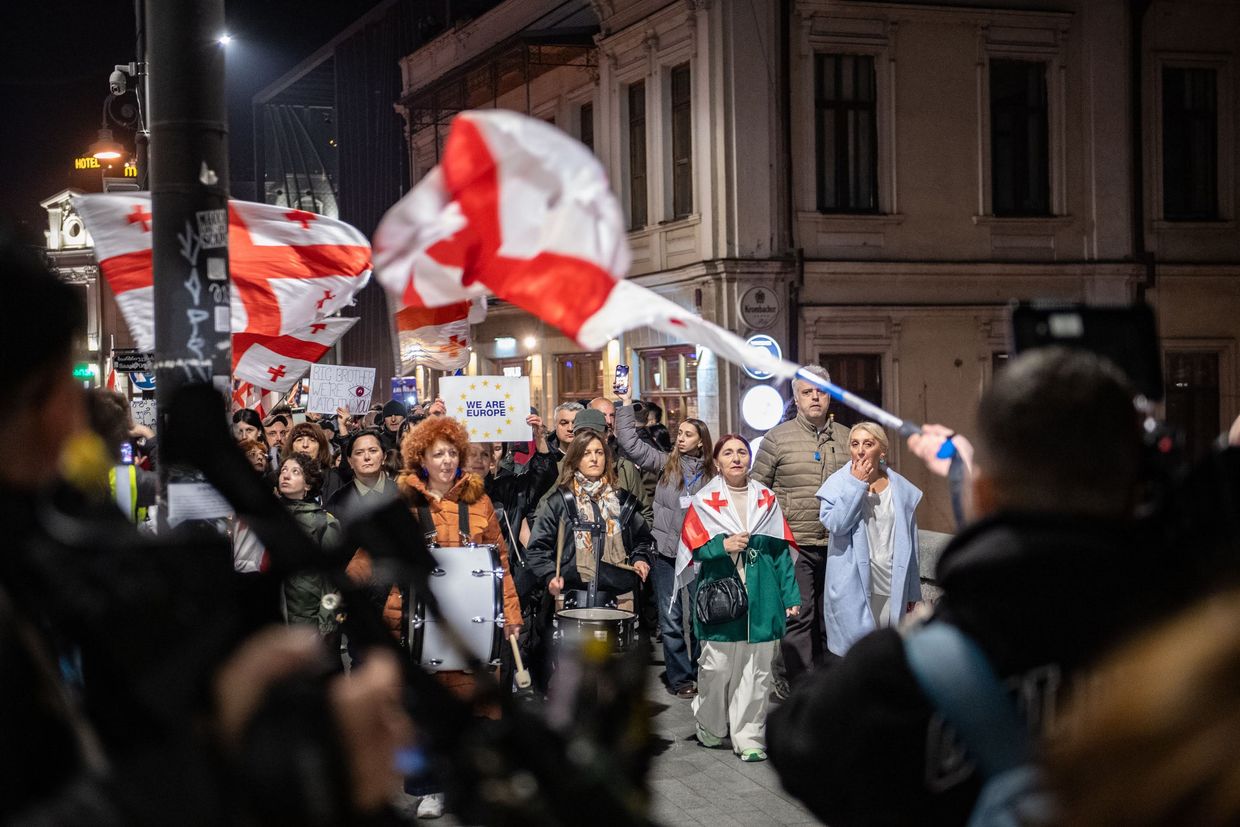
Most detentions are no longer taking place outside parliament, the traditional protest site, but rather on surrounding streets, with hundreds of officers involved in the process. This came after police managed — nearly a year after the start of the daily anti-government protests — to successfully prevent demonstrators from blocking Rustaveli Avenue, something protesters had been doing every night for several hours.
In response, the anti-government movement shifted its strategy: instead of remaining statically in front of parliament, protesters now only gather there briefly before marching through the nearby streets. Police soon moved to restrict this tactic as well, with officers now disrupting the marches even on narrow side streets, sometimes leading to scuffles.
Detentions over a rubber chicken
Against this backdrop, the charges used for detentions have also shifted. Compared to earlier weeks, protesters are now rarely, if ever, detained for blocking the road. Instead, police are arresting people, mostly those on the pavement despite not yet being banned, on charges such as disobeying police orders, petty hooliganism, or insulting an officer.
Several arrests have drawn particular attention, including that of protester Vano Skhirtladze, who was detained on 20 November for using a rubber chicken squeaky toy in front of police officers. Police initially interpreted this act as an insult, which the courts later upheld — Skhirtladze was subsequently sentenced to eight days in prison. In response, other protesters brought their own chicken toys the following day.
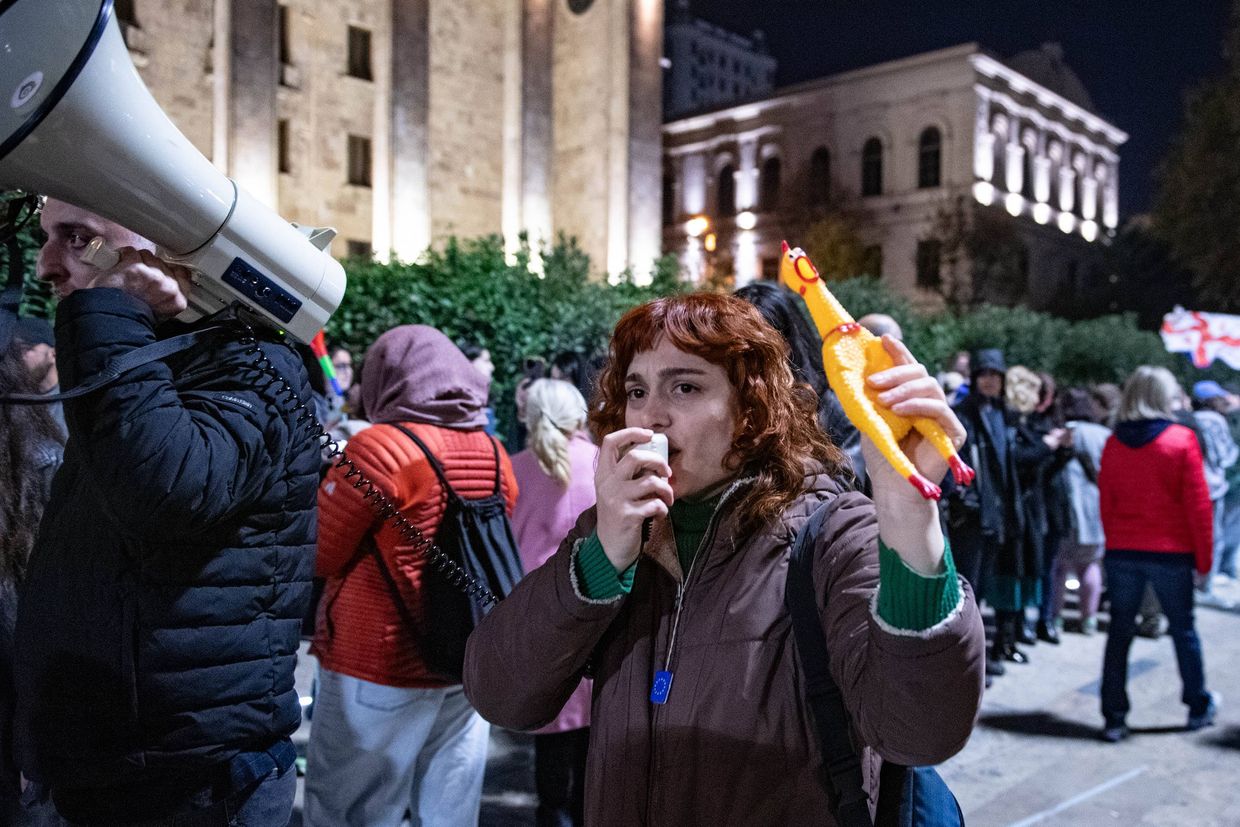
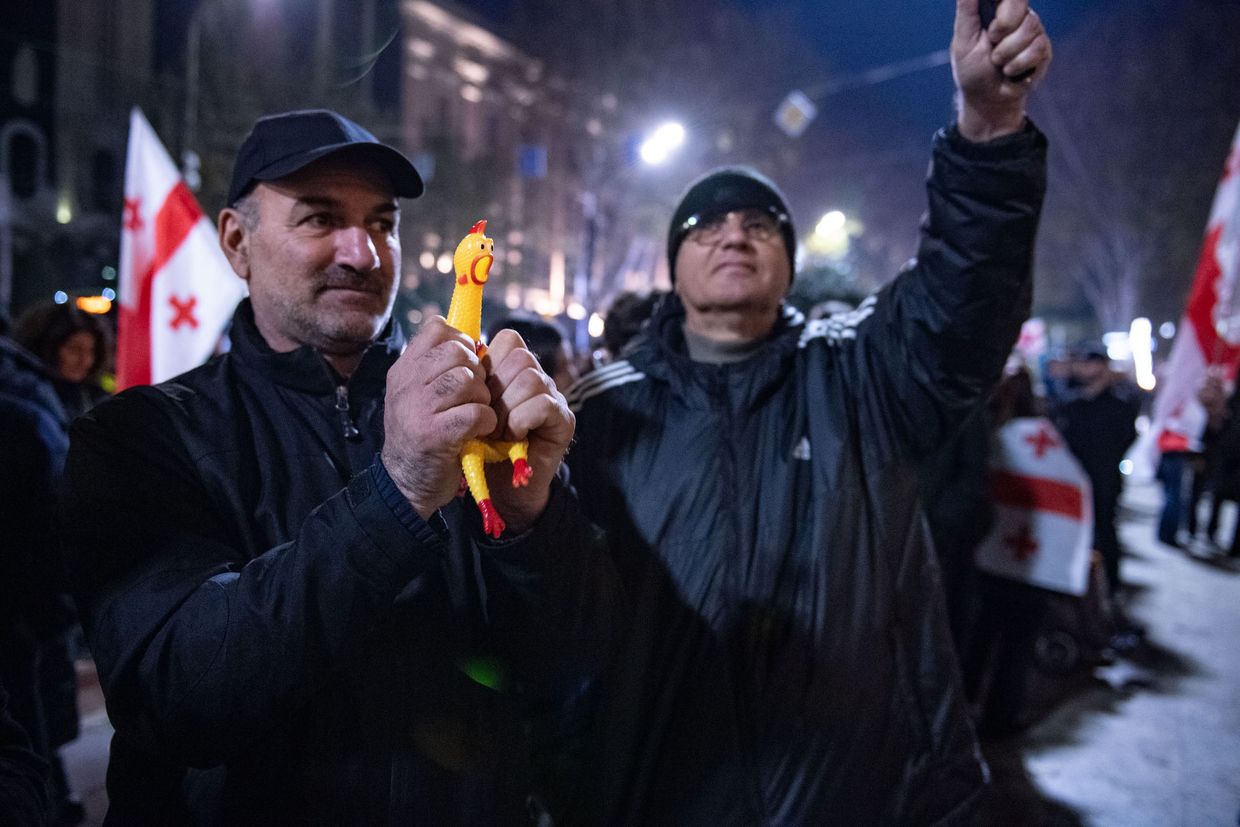
In another case, on 22 November, opposition TV Pirveli journalist Giorgi Mamniashvili was detained. According to the channel, he was performing his professional duties at the time of his arrest. TV Pirveli also released a video, which the channel said was filmed shortly before his detention, showing Mamniashvili capturing footage of protesters being arrested on his phone before he himself was detained. Another video, which the channel said captured the moment of his detention, showed Mamniashvili telling police that he is a journalist and is working.
The journalistwas ultimately fined ₾3,000 ($1,100) on charges of petty hooliganism and disobeying police orders.
Another person detained during the 22 November protest was demonstrator Lida Tsomaia. She was charged with petty hooliganism and insulting a police officer and was ultimately fined ₾2,000 ($740). According to her lawyer, Boris Chele Kurua, Tsomaia was subjected to violence and sustained injuries.
Kurua said that after Tsomaia was detained on the pavement near parliament, she was ‘stuffed into a vehicle, verbally insulted, shown someone else’s Facebook post, and yelled at about why she had written it’.
According to Kurua, the following day, 23 November, police also detained the person who had previously been mistaken for Tsomaia.
State attempts to suppress protests
From police violence to ₾5,000 ($1,800) fines, the Georgian state has employed various means to suppress the ongoing wave of street protests that began on 28 November 2024, after the ruling Georgian Dream party halted the country’s EU membership bid.
When the rallies and road blockages continued, despite shrinking in size, the Georgian Dream-controlled parliament decided in mid-October to cancel the fines altogether and introduce imprisonments for first offences. The move was followed by mass arrests of demonstrators, sending dozens of people to prison for days.
Yet groups of protesters — sometimes holding umbrellas to conceal their identities — kept briefly blocking the capital’s Rustaveli Avenue. They remained on the road until the police on site intervened, then quickly moved back onto the pavement.
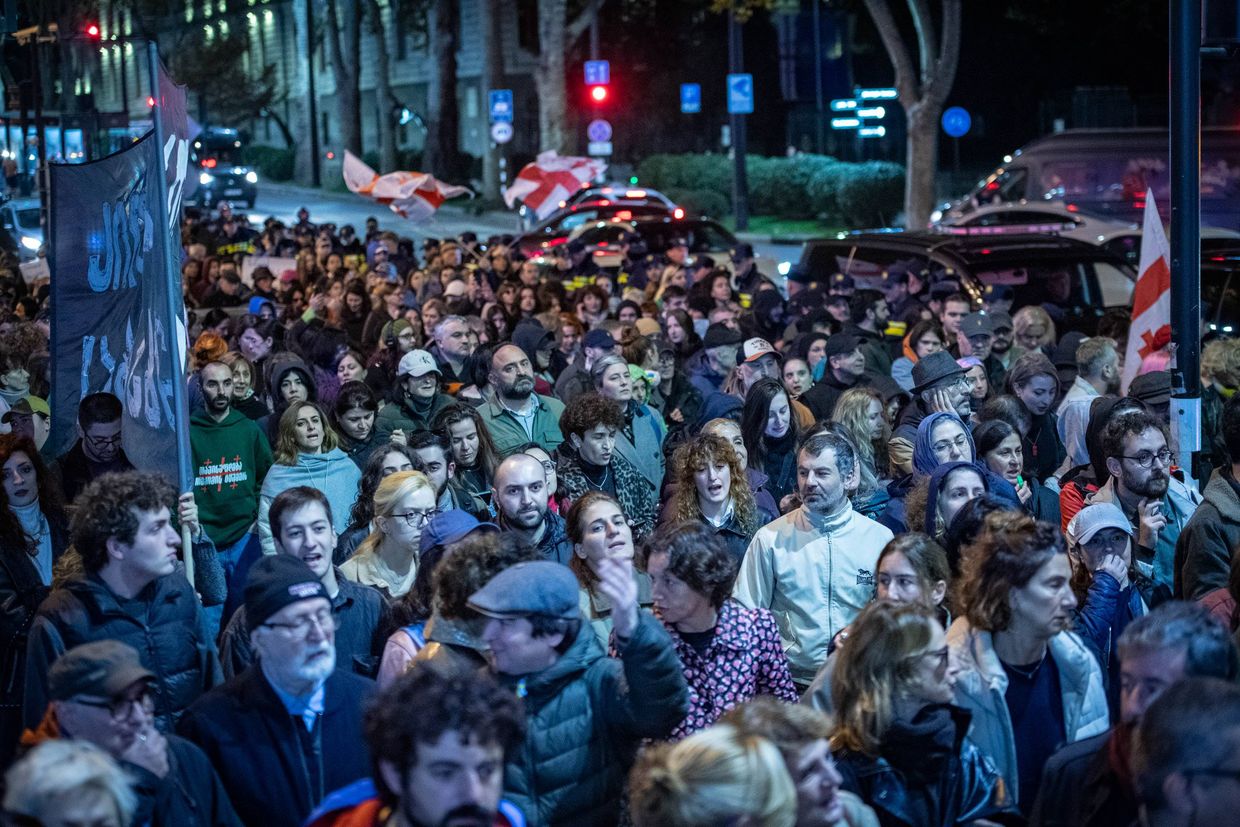
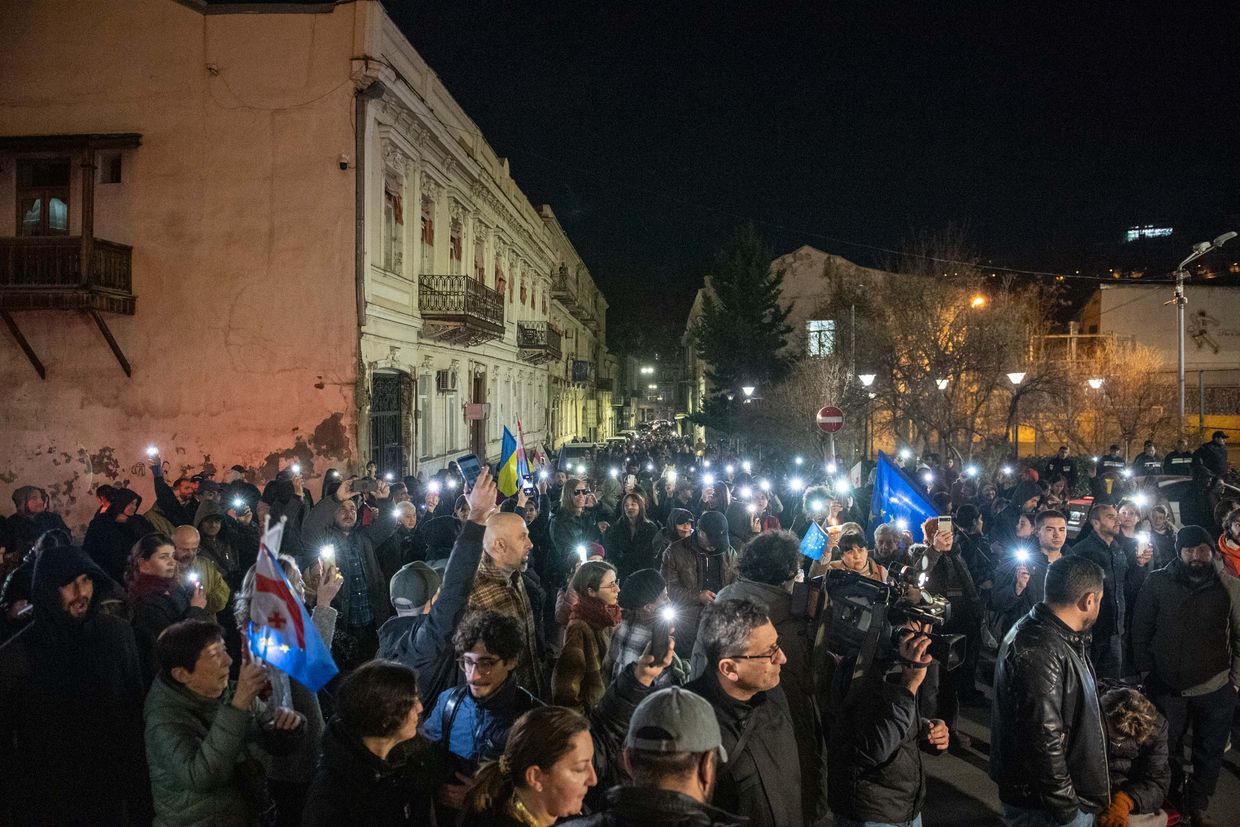
It was only on 6 November that the police grew more forceful, with lines of officers forming cordons along both sides of the road, herding the protesters onto the pavements and not even allowing them a brief passage across the street.
It was from this point that marches in various directions intensified, including toward the Government Administration building near parliament.
‘They made another mistake and took the wrong step. It didn’t work out for them — we’ll always come up with something’, demonstrator Nino Gogua told OC Media in mid-November, while describing the changing tactics of the movement.
Amid restrictions and resistance, the daily protests that began in late 2024 will soon mark their first anniversary. To commemorate this date, activist groups and opposition parties have called for a protest march in the centre of Tbilisi on 28 November.
